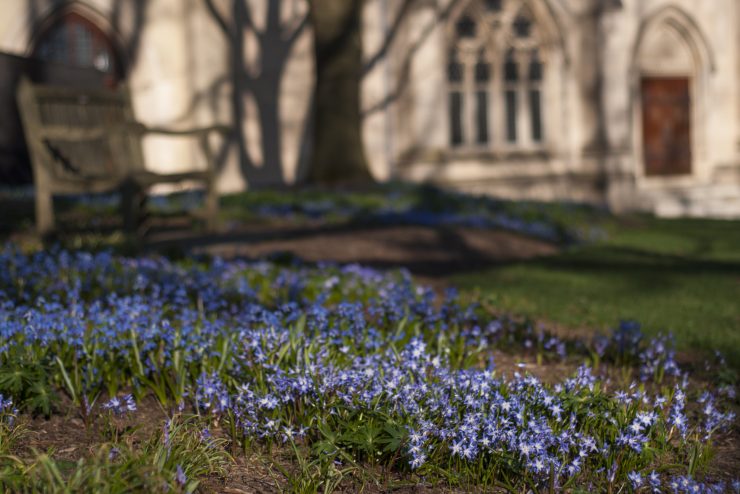A Messiah of a Different Kind

John 11: 45-53
Many of the Jews, therefore, who had come with Mary and had seen what Jesus did believed in him. But some of them went to the Pharisees and told them what Jesus had done. So the chief priests and the Pharisees called a meeting of the council and said, “What are we to do? This man is performing many signs. If we let him go on like this, everyone will believe in him, and the Romans will come and destroy both our holy place and our nation.” But one of them, Caiaphas, who was high priest that year, said to them, “You know nothing at all! You do not understand that it is better for you to have one man die for the people than to have the whole nation destroyed.” He did not say this on his own, but being high priest that year he prophesied that Jesus was about to die for the nation, and not for the nation only, but to gather into one the dispersed children of God. So from that day on they planned to put him to death.
What was the culminating event that led to the arrest and crucifixion of Jesus? What was the last straw for the religious authorities that moved them to make good on their threat to have him put to death? In Matthew, Mark, and Luke it was the cleansing of the Temple, that moment when Jesus walked into the Temple and threw out all the merchants and the money changers because commerce was becoming more important than prayer. In John’s Gospel, it was the event that took place right before our reading this morning when Jesus raised Lazarus from the dead. It was such an astounding miracle that the religious authorities were terrified this marvel would make Jesus so popular that, as John’s writes, “If we let him go on like this, everyone will believe in him, and the Romans will come and destroy both our holy place and our nation.”
Now why would the Romans care about some itinerant Jewish preacher? Because if he became too popular the people might proclaim him as the Messiah and the prophesied Messiah was supposed to be a great military leader who would rally the people, start a war, and liberate Israel from Roman occupation. If Jesus started that kind of an uprising, Caiaphas feared how Rome might retaliate, so he decided that it was better for Jesus to die than for the whole country to suffer.
Tomorrow is Palm Sunday. Tomorrow is the day we celebrate Jesus’ entry into Jerusalem, not as a conquering hero riding a war horse, but as a man of peace riding a simple donkey. Yes, he is the Messiah but not the kind of Messiah they were expecting. The Romans and the religious authorities feared he might to try and free Israel from the Roman Empire. Jesus had much grander plans. He didn’t start a war, instead he sacrificed his life, and in so doing he didn’t save Israel from Rome, he saved us all from the power of sin and death.
Blessings,
Randy
prayer
Almighty and everliving God, in your tender love for the human race you sent your Son our Savior Jesus Christ to take upon him our nature, and to suffer death upon the cross, giving us the example of his great humility: Mercifully grant that we may walk in the way of his suffering, and also share in his resurrection; through Jesus Christ our Lord, who lives and reigns with you and the Holy Spirit, one God, for ever and ever. Amen.